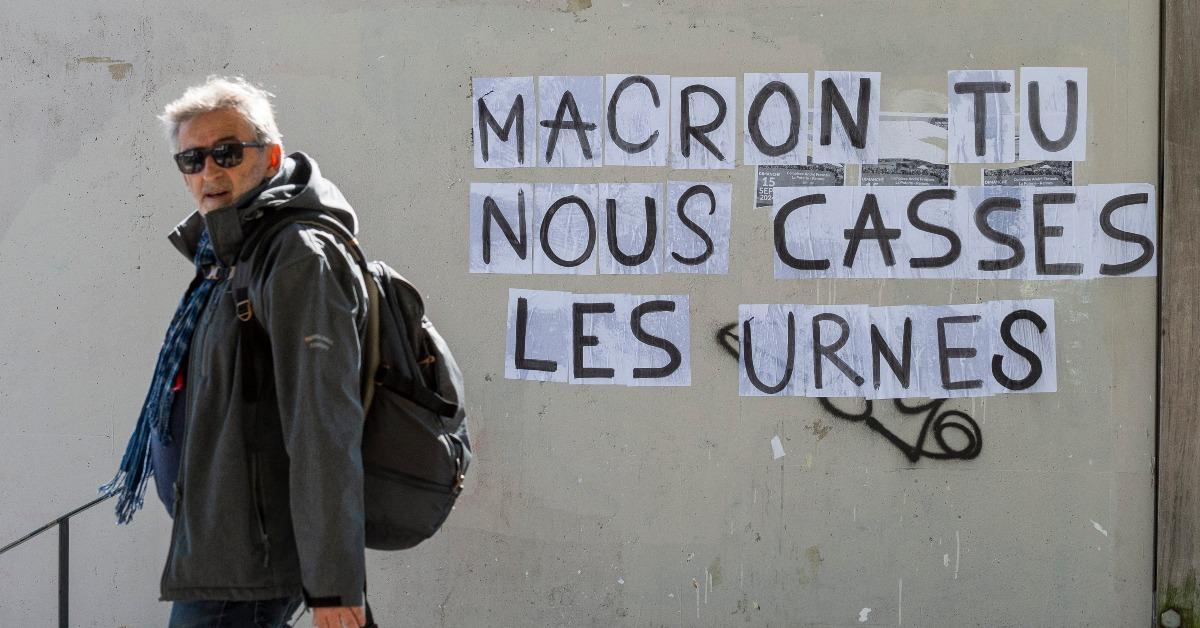Is the French Government on the Brink of Collapse? Chaos in French Parliament After Ouster
Barnier's ousting caused the government to collapse, setting up a chaotic and turbulent road ahead.
Published Dec. 5 2024, 3:06 p.m. ET
Chaos and uncertainty reigned in France after the French Parliament took to the floor to oust the Prime Minister on Dec. 4, 2024. That Prime Minister, Michel Barnier, was appointed to the position in September 2024 after President Emmanuel Macron looked to soothe turbulent waters in the French government by nominating the accomplished former Brexit negotiator.
Barnier's investiture was unpopular from the start, and his efforts to ram a 2025 budget through caused Parliament to fight back, calling for his ouster. Many worried as the vote was called that the French government was on the brink of collapse and that his ousting would cause it to tip over. Here's what we know about the situation in France and what will happen once Barnier has resigned.

"Macron tu nous casses les urnes" is plastered on a wall in Rennes, France, after French President Emmanuel Macron nominated Michel Barnier to Prime Minister in September 2024
Is the French government on the brink of collapse? It has already tipped over already.
By loose definitions, the government has already collapsed. With Barnier having the distinction of serving the shortest term of any French Prime Minister, France's political problems are just beginning. The country has been in a state of political unrest for months as shifting power factions in Parliament have scrambled for control and a snap election over the summer upended Parliamentary majorities.
The liberal voting bloc New Popular Front leftist coalition became the largest after summer elections, and they expected to be given a prime minister to represent their party when Macron considered nominees for the appointment.
However, Macron upset many by tapping conservative Barnier for the position in September. The backlash was immediate, with protesters accusing Macron of ignoring their wishes and Parliament digging their heels in to prevent any forward progress for any agendas being championed by Barnier.
In early December 2024, Barnier made a last-ditch effort to ram his 2025 budget through. The budget included tax rises and billions in spending cuts for the government.
Michel Barnier ousted after successful "no confidence" vote in the French Parliament
Parliament factions united and immediately called for a vote of "no confidence," which Barnier lost. As a result, his resignation was expected and the government went into a state of technical collapse as Macron was forced to again consider nominees for prime minister.
Why does the French government have both a president and prime minister?
To understand the dynamics at play, it's important to understand why France has both a president and a prime minister. The system is called a semi-presidential system, and it's designed to give power to both an elected president and an appointed prime minister to divvy up important decisions. The goal is equitable division of powers and preventing power consolidation, but the reality is often far different.
The president is elected by the people. The president then nominates a prime minister who must be approved by Parliament. As is evidenced by Barnier's ousting, Parliament has tools to punish PMs who won't play by the rules or who overstep their power.
Members of the most political bloc in Parliament are often represented by a prime minister from their party, but this is not what happened with Barnier. Barnier is conservative, and the most powerful bloc in Parliament currently is liberal.
In the Westernized world, France is the only modern country to use this semi-presidential system. There are, however, a number of less-Westernized countries that operate on a semi-presidential system, including Algeria, Burkina Faso, DR Congo, Guyana, and others.
What happens once Barnier resigns?
After he lost the no-confidence vote, Barnier was widely expected to resign. This begs the question: What comes next? During the vote, Macron was traveling out of the country and it was reported that he was already beginning to consider new prime minister candidates before the vote had even been decided.
With everything up in the air, Macron's choice will be vital to determine whether or not the next era in French politics is one of reconciliation and peace, or whether it ratchets things up another notch and increases the turbulence.
While Parliament battles for power, the French people are watching carefully and weighing their options. The next presidential election for France is expected in April 2027. Macron will have exhausted his two-term limit by then but has expressed disdain for the rule in the past.
With more questions than answers in France, it's unclear what will come of the top-down shake-up when the dust settles.
